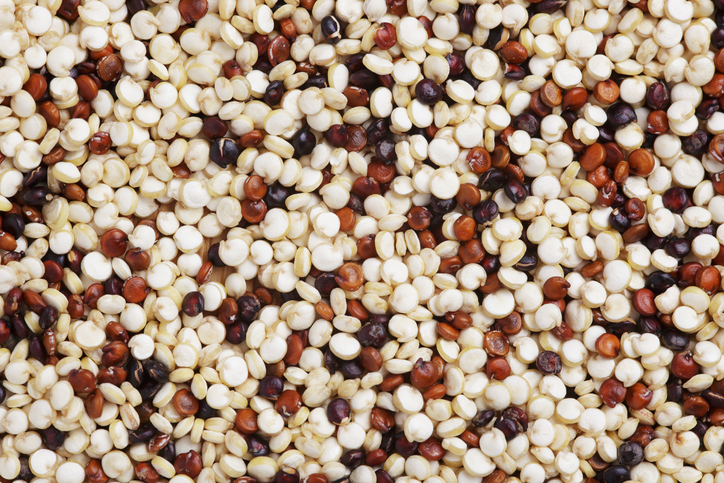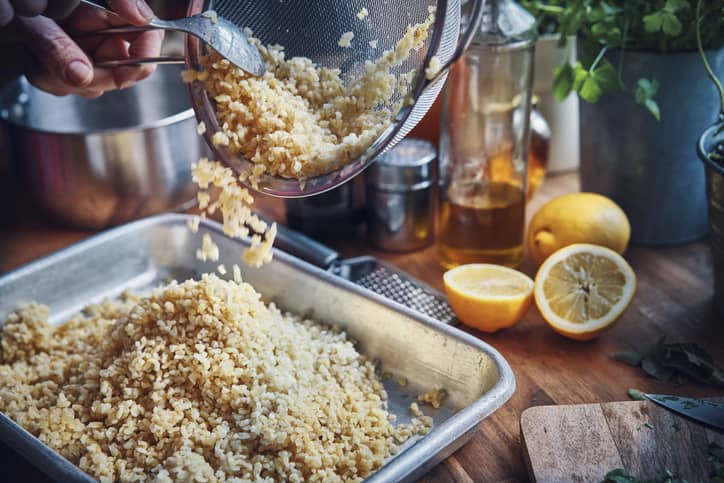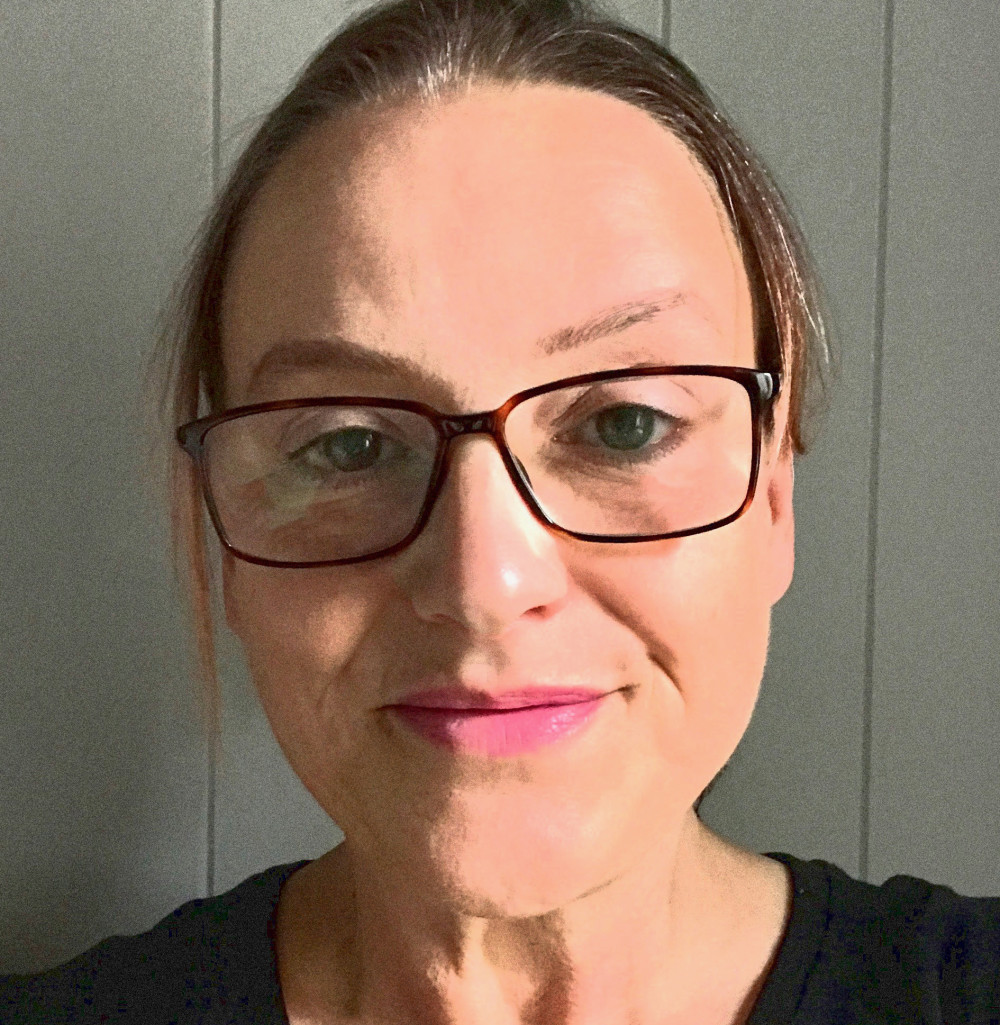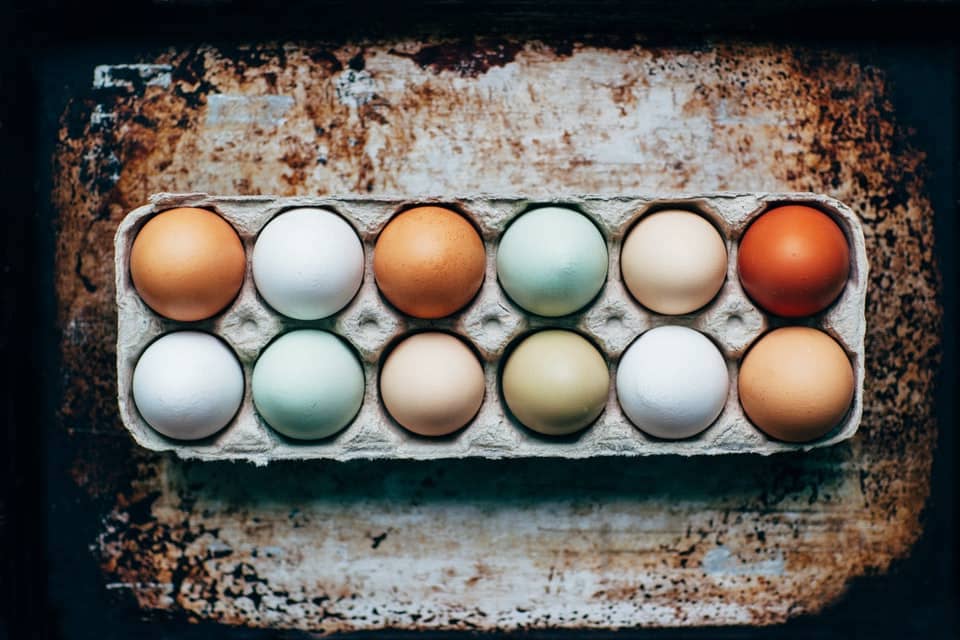You’ve probably read or heard about quinoa – pronounced ‘keen-wah’ – but you might be wondering what all the fuss is about. Why has it become so popular as a health food?
Read on to learn the facts about quinoa, including its health benefits and how to eat it.
What is quinoa?
Quinoa is a seed that comes from the goosefoot plant, which is related to beetroot and spinach. However, it’s usually thought of as a wholegrain, as it provides similar nutrients and can be used like a grain in recipes.
It’s been grown for thousands of years in South America and was such an important crop for the Inca Empire that they called it the ‘mother grain’.
There are more than 120 types of quinoa grown around the world, but 3 types are commonly available to buy – red, white and black. All have a subtle, nutty flavour.

What are the health benefits of quinoa and is quinoa gluten-free?
Quinoa has lots of nutritional benefits. It’s so healthy, in fact, that NASA thinks it’s a suitable crop to grow in space.
First, it contains all 9 essential amino acids, which means it’s a ‘complete protein’. Many plants don’t have all these amino acids. So quinoa is an excellent plant-based source of protein.
It’s also higher in fibre than other grains, such as rice, which is good for your digestive system. And yes, it’s gluten-free, so it’s a great grain for people with a gluten allergy.
Quinoa is packed with minerals and vitamins, too. It’s a good source of manganese, magnesium and phosphorus and also contains folate, copper, iron, zinc and potassium, plus B vitamins and vitamin E.
It also contains plant antioxidants called ‘flavonoids’, which may have various health benefits.
A cup (185g) of cooked quinoa will provide 222 calories, 39g of carbohydrates and 4g of fat.
How do I eat quinoa?
Quinoa can be used in a variety of meals and recipes, so it’s easy to start eating it.
Try it instead of rice or couscous in things such as stews, soups, salads and tacos. You can even use it instead of oats to make a high-protein porridge. You can also buy quinoa flour, which you can add to baked goods such as bread, pancakes and pizza bases.
Before cooking quinoa, you might need to rinse it in water to get rid of a substance called saponin, which can make it taste bitter. (Check the packaging, as some types will have already been rinsed.) Then you can generally just boil it in water until tender.
Some people have an intolerance to quinoa and get symptoms such as stomach pain and itchy skin after eating it. This can be caused by saponin, so you might still be able to eat quinoa if you make sure you rinse it thoroughly.
However, like with most food types, including other grains and seeds, it is possible to be allergic to quinoa, and rarely it can cause severe allergic reactions, including a life-threatening reaction called anaphylaxis.

Key points
- quinoa is a seed that’s thought of as a wholegrain and is very nutritious
- it’s high in protein and fibre and is gluten-free
- you can use it instead of other grains in a wide variety of dishes
- you may need to rinse it in water before cooking
- it’s possible to have an intolerance or allergy to quinoa



